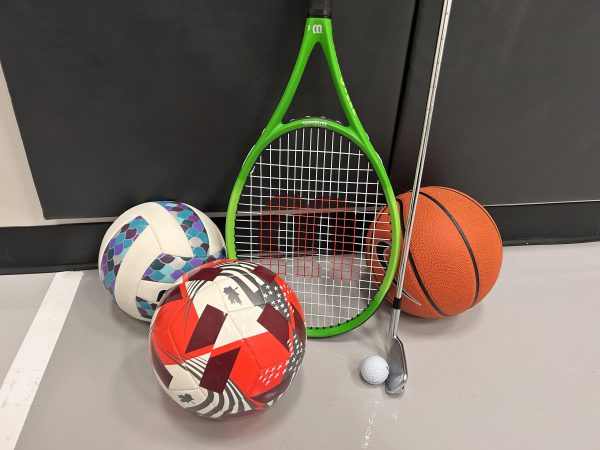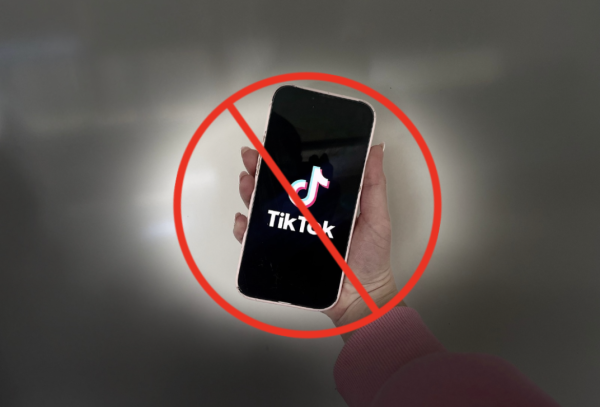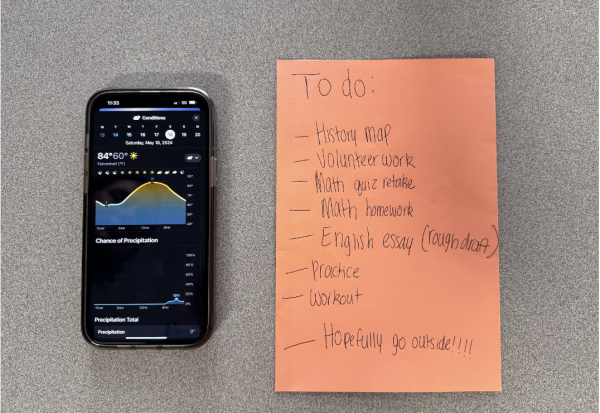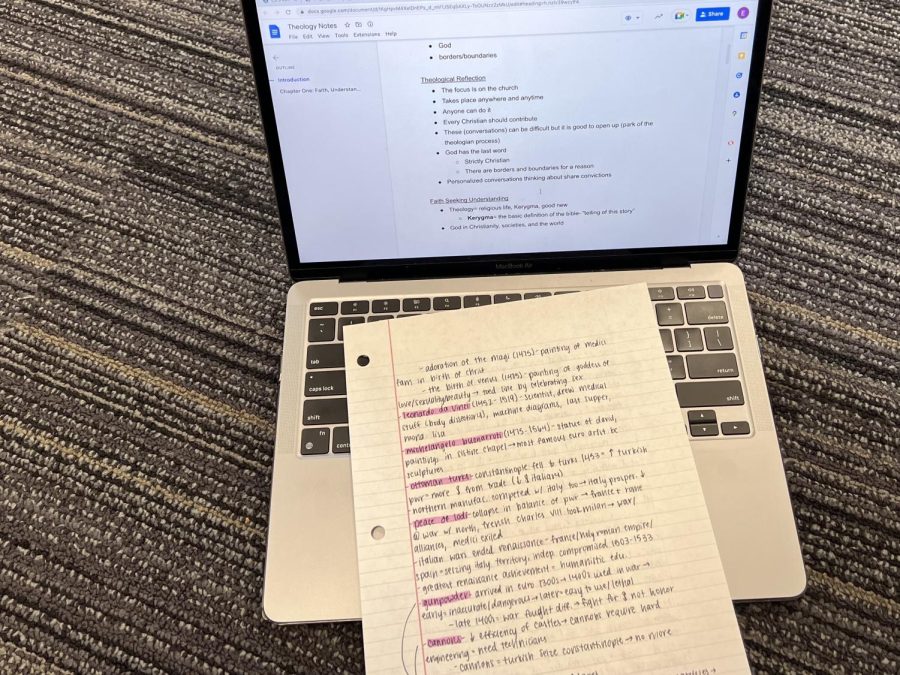What’s Superior: Notes Online or By Hand?
Which is better? Taking notes by hand or online?
Is it better to take notes on paper or a digital device? Which of the two ways works is the best option for memorizing information? According to research, taking notes on paper is a more effective way to learn and retain information than taking notes on a digital device.
In 2014, researchers at the University of California and Princeton University conducted a behavioral neuroscience study. The study shows that students who take notes by hand outperform students who take notes on digital devices in terms of conceptual understanding.
The majority of Benilde-St. Margaret’s teachers agree with this study, advising their students to take handwritten notes. The idea is to ensure that students are not using their laptops to access other websites, and taking notes by hand has been suggested to demonstrate a better understanding of the topic. Keanan Faruq, an English teacher, gives his students the option of taking notes by hand or by digital device. “I don’t have complete trust that students are always staying on task because I can’t see their screens, but I have to believe they are taking notes,” Faruq said.
For students with academic accommodations, taking notes on a digital device has numerous advantages. A student with Dysgraphia, a learning disability that affects writing abilities, will have a more difficult time writing notes by hand. Dysgraphia can appear to people with spelling difficulties, poor handwriting, and difficulty putting thoughts on paper. For students with Dysgraphia, allowing extra time on written assignments and voice to text are great examples of an accommodation some students can use. “Voice to text is an example of an accommodation that some students are allowed to use, but I always advise them to read back what they have said to better retain the information,” learning support specialist Maureen Miller said.
Because of people’s accommodations, I just let all students take notes by what method they prefer,
— Faruq
Because of these accommodations, Faruq allows his students to choose how they take their notes. Allowing everyone the option is much easier for him, rather than remembering who has accommodations and who does not. Each teacher at BSM has their own set of rules for taking notes in their class. There are plenty of teachers at BSM that are the opposite of Faruq and do not give their students the choice. “Because of people’s accommodations, I just let all students take notes by what method they prefer,” Faruq said.
On the other hand, Latin teacher Rob Epler only allows his students to take handwritten notes. Learning a language necessitates a significant amount of memorization, which has an impact on one’s long term memory. Taking notes that make sense to you will assist you in remembering more of what you’re learning. “We don’t really absorb information if we’re just taking, like, dictation with our tapping fingers. If you’re writing [what] your brain’s processing what you’re hearing and seeing and see it actually more of it sticks,” Epler said.
According to the behavioral neuroscience study noted above, taking notes by hand is more effective for memorization and retention of the material on which the notes are being taken. However, many factors can come into play when teachers decide which method to present to their students. Teachers like Faruq take into account students with academic accommodations. Epler accounts for students with accommodations as well, but his class is based on retaining information for years to come, and he concludes that handwritten notes benefit the student.





















































